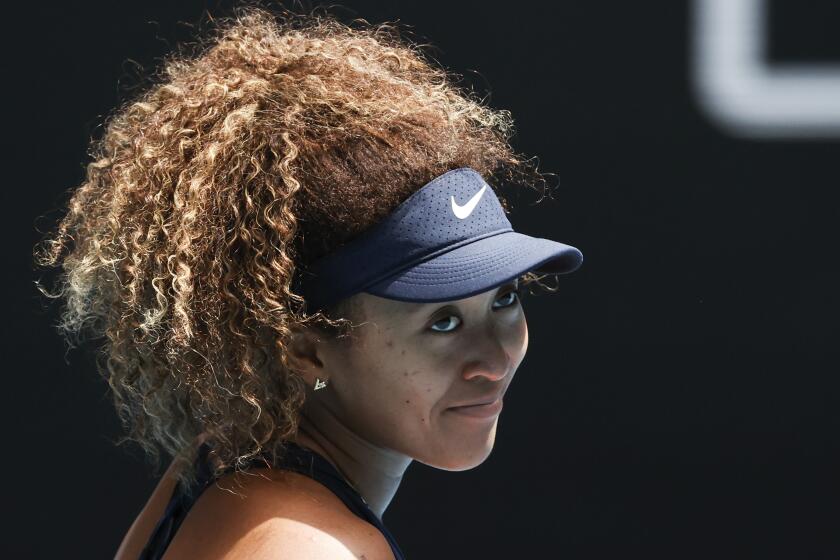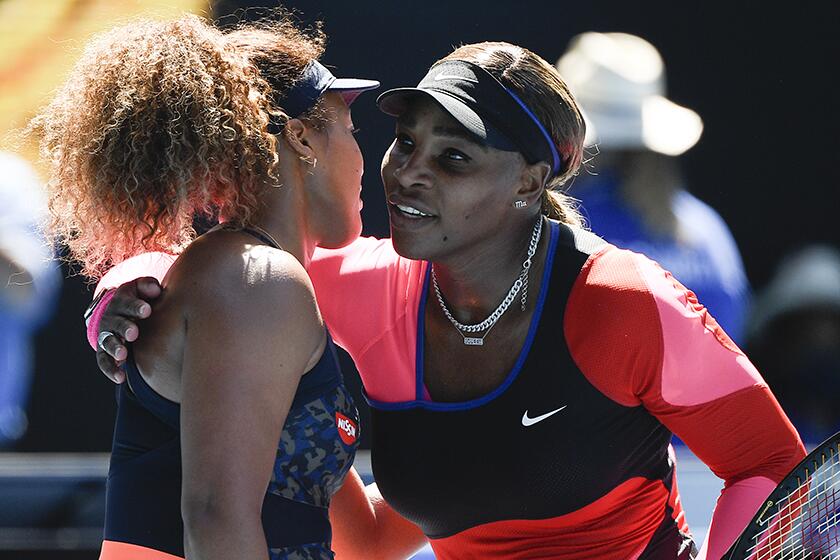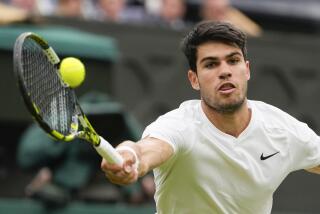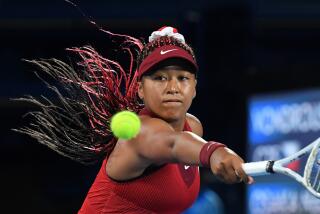Column: Naomi Osaka and Jennifer Brady Australian Open final will showcase power and finesse
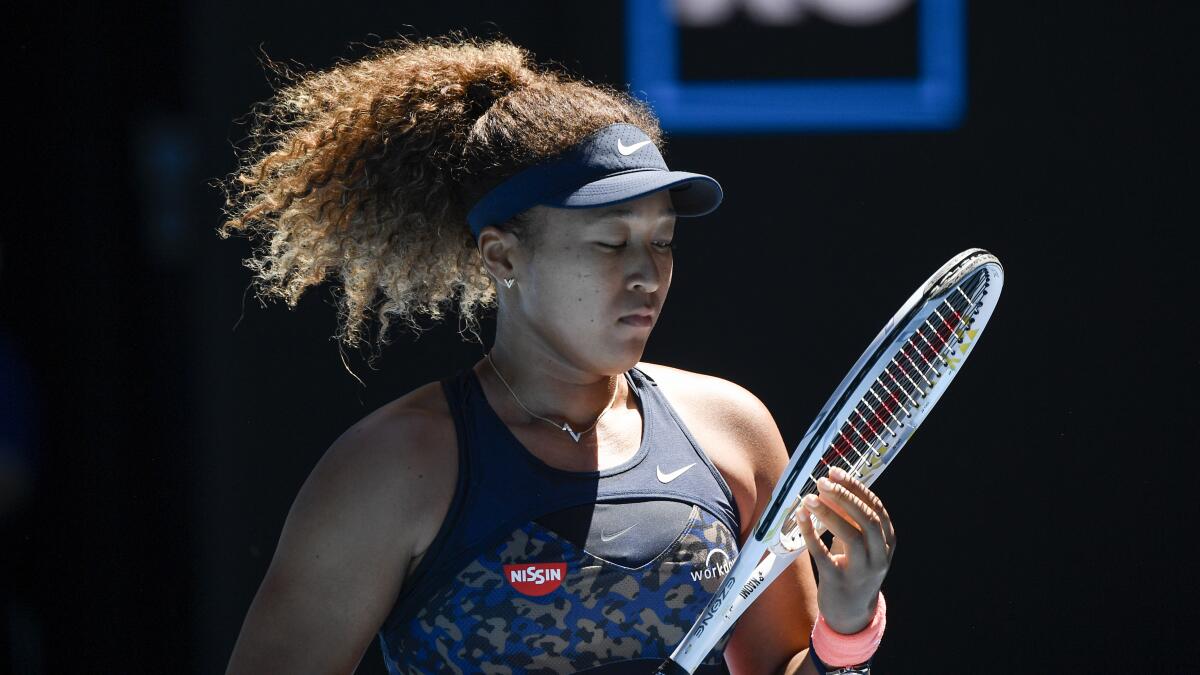
- Share via
Jennifer Brady knew early on that Naomi Osaka would be someone to reckon with someday.
While growing up in Florida they often faced each other in local junior tennis tournaments. Osaka made an especially strong impression on Brady in one event. “I think she was just coming up, maybe inside the top 200, and I remember playing her,” Brady said. “I was like, ‘Wow, she hits the ball huge. She’s going to be good.’ I mean, I was like, ‘OK, she’s got something special.’”
Brady was right. Osaka has become a three-time Grand Slam singles champion at 23, an intriguing young woman with a wise old soul, a stellar athlete who’s capable of hitting powerful serves and ground strokes while bringing a steely focus to big moments. Osaka is 11-0 in Grand Slam quarterfinals, semifinals and final matches and has a 20-match winning streak, driven by a single thought.
“I have this mentality that people don’t remember the runners-up. You might, but the winner’s name is the one that’s engraved,” Osaka said after she overpowered her idol, Serena Williams, to earn a 6-3, 6-4 victory in the Australian Open semifinals. “I think I fight the hardest in the finals. I think that’s where you sort of set yourself apart. It’s the other person [who] won as many matches as you did. It’s like the biggest fight.”
Having again stymied Serena Williams’ quest for history, Naomi Osaka goes for a fourth Grand Slam title, against former UCLA star Jennifer Brady.
The last obstacle between Osaka and her second Australian Open title is Brady, who subdued nerves to pull out a 6-4, 3-6, 6-4 semifinal victory over Karolina Muchova of the Czech Republic. Brady, remarkably unaffected by losing two weeks’ practice while placed in hard lockdown upon her arrival in Australia, will play in her first Grand Slam singles final when she faces Osaka on Saturday at 12:30 a.m. PST. They’re not on the Florida junior circuit anymore.
“I’ll definitely come out and I’ll definitely be nervous 100% but there is no hiding it,” Brady said. “I just have to embrace it and enjoy the moment.”
Osaka and Brady met in a terrific semifinal at last year’s U.S. Open, where Osaka won in three sets. Both women said they can draw on that as a reference but they’ve also evolved. Osaka returns better; Brady is fitter and covers the court better. Osaka, the No. 3 seed, is favored over No. 22 seed Brady but the matchup should be a showcase of power and finesse.
“I don’t think there is anyone that I would compare her to that I have played, not that I can think of,” Brady said. “She just puts a lot of pressure on you to serve well, because she’s holding serve in, like, 45 seconds. Yeah, she’s serving well. She’s coming at you with a lot of power, so it also puts a lot of pressure on you to be aggressive and try to get the first strike. Otherwise, you’re the one running, and I don’t want to be running.”
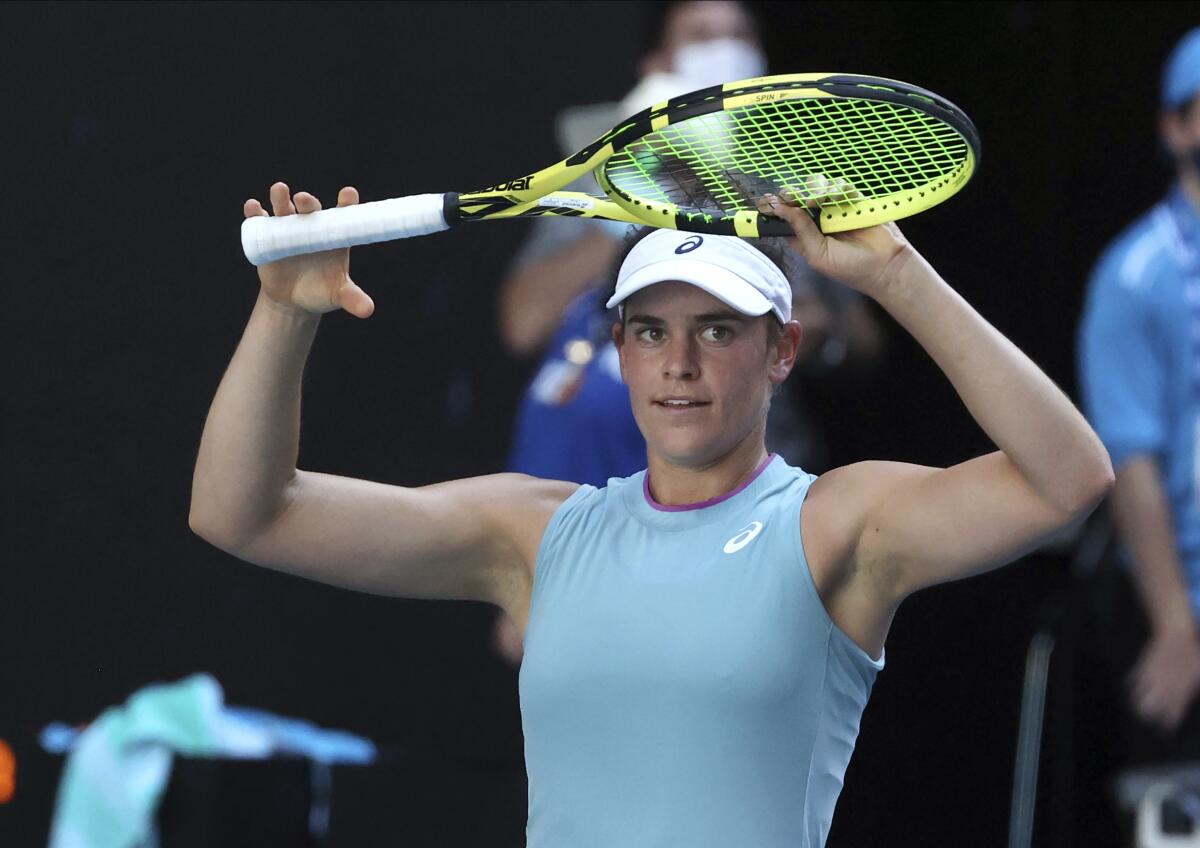
Brady, 25, struggled as a junior player. “I don’t think I really just appreciated the opportunities that I had with the sport,” she said. “I was just doing it because I had to, because I had nothing else to do, because I didn’t know what else to do except for going and practicing five hours a day and just waking up, doing it all over again for, I don’t know, my whole junior career.” She decided to play at UCLA, where she blossomed in a team setting and contributed to the Bruins women’s 2014 NCAA title.
She turned pro after that but was frustrated by her progress until she left Florida to train in Germany with coach Michael Geserer. The results have been outstanding. “Once you become too comfortable, I think that’s when you’re in trouble,” she said.
Naomi Osaka defeated Serena Williams in straight sets to advance to the Australian Open final and deny Williams’ bid for major title number 24.
Osaka tends to be harsh on herself, and against Williams she became so wrapped up in trying to serve perfectly that her serve and her focus faltered, leading to eight double faults. She has learned to demand a lot of herself but also forgive her missteps, freeing her to fight off two match points in the round of 16 against Garbine Muguruza and to beat Williams in the semifinals at the legend’s own power-centric game.
“I think the thing that I’m most proud of is now how mentally strong I’ve become,” Osaka said. “I used to be really up and down. For me, I had a lot of doubts in myself. But I think the quarantine process and seeing everything that’s going on in the world, for me it put a lot into perspective. I used to weigh my entire existence on if I won or lost a tennis match. That’s just not how I feel anymore.”
More to Read
Go beyond the scoreboard
Get the latest on L.A.'s teams in the daily Sports Report newsletter.
You may occasionally receive promotional content from the Los Angeles Times.

